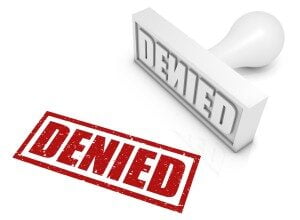As I write this, it is months away from the election.
As I write this, it is months away from the election. The election season has been fascinating. I watched many of the Republican ‘debates’ which ranged from informative to entertaining to absurd. Candidates came and candidates went. Many enjoyed short lived surges, only to flame out afterwards. I was drawn early on to Jon Huntsman, but it seems that decent folks who tell the truth without pandering can’t succeed.
So, now we are left with Romney vs Obama, a contest that at present seems too close to call. The continued anemic job creation statistics, which may not be the president’s fault, will hurt him. If the economy appears to creep forward in the months ahead, and there are no unforeseen events to sandbag the president, then I think he will prevail. It is the unforeseen that worries the Democrats. If several economies in Europe implode and drag us to the edge of the cliff, it will have a political impact here in November.
Neither candidate is ideal. Romney can be rightfully criticized for is ‘evolving’ political views and for lacking a real connection with everyday Americans, many of whom are suffering. Obama has resorted to classic class warfare, aiming his populist message to exploit envy for votes. His legislative triumph, Obamacare, is deeply flawed and was rammed through the legislature. Soon, the Supreme Court of the United States will decide if the law, particularly the individual mandate, is unconstitutional.
My advice? Choose wisely.
A new program called Choose Wisely was launched earlier this year, which deserves our close attention and support. It aims to eliminate unnecessary medical testing which accomplishes two important goals. It saves money and improves medical quality. The effort is under the aegis of the American Board of Internal Medicine Foundation and will continue for several years. Numerous medical societies and Consumer Reports will each identify medical tests and treatments that are being over utilized and should be curtailed. I am pleased that the American Gastroenterological Association is participating.
I’ll paraphrase some of the recommendations from the various participating societies.
- Don’t give cancer patients chemo if it won’t do them any good.
- Don’t subject patients to unnecessary colonoscopies.
- Do not perform routine preventive medical tests on dialysis patients who don’t have long to live.
- Do not perform electrocardiograms (EKGs) each year on healthy patients who don’t need them.
- Do not perform cardiac stress tests on patients who do not need them.
Yeah, these suggestions sound absurd, but I guess we have to start somewhere. The medical societies are not just picking low hanging fruit, they’re picking fallen fruit that’s on the ground. These initial recommendations are not controversial. At present, there is no surgical society participating. If there were, we could expect a bold recommendation such as ‘do not remove a gallbladder just because it’s there’.
Choose Wisely will confront obstacles and push back once the low fruit has been cleared. It will be very difficult to reach the fruit hanging on the higher branches. Physicians, pharmaceutical folks, medical device companies and hospitals have never been inclined to sacrifice their incomes to serve the greater good. This is why comparative effectiveness research (CER), a feature of Obamacare that I do support, will have great difficulty gaining traction. Any reform that saves health care dollars reduces some group’s income. Guess what happens then.
I support Choose Wisely, but I don’t find the opening recommendations to be all that wise. Shouldn’t we physicians already know not to perform unnecessary medical tests and treatments that patients don’t need? At least now, the public will be armed with official information to enable them to advocate more effectively for themselves.
As the program matures, the choices will become more controversial. There will be spirited disagreement over whether a medical intervention is unnecessary. I predict that those who stand to lose economically will take positions that protect their revenue stream. Indeed, voters may do the same thing this November.










